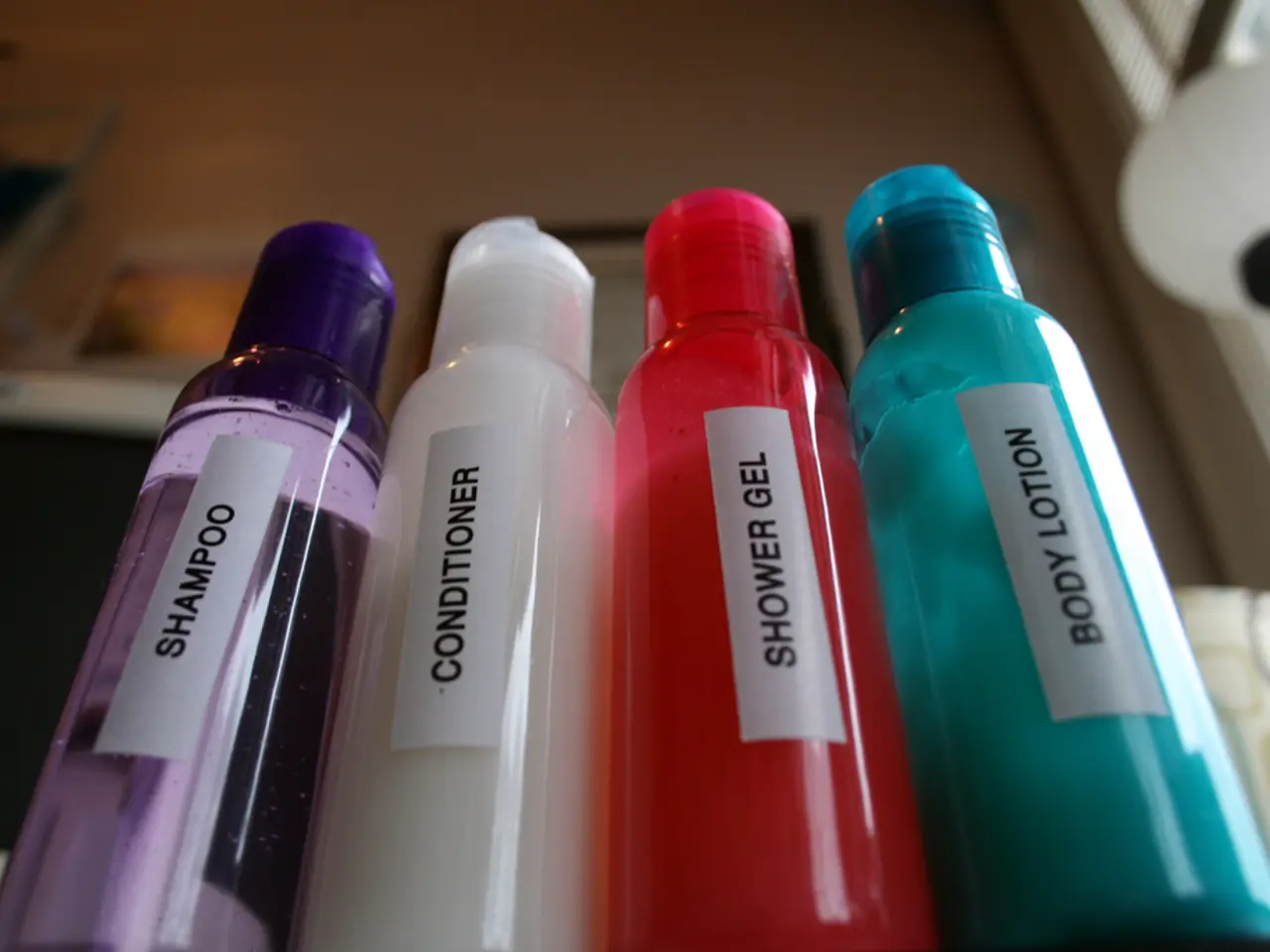Regimen for Managing Acne Caused by Hormonal Imbalances in the Skin
Hormonal acne can be a persistent and challenging issue for many teenagers and adults, affecting up to 50% of women in their 20s and 25% in their 40s, as well as a significant number of men. This type of acne is primarily driven by fluctuations in hormones, especially androgens, which increase sebum production and lead to clogged pores.
Effective management of hormonal acne often requires hormonal therapies such as oral contraceptives or anti-androgens like spironolactone. A targeted skincare routine is also crucial in balancing oil production, reducing inflammation, and preventing acne.
A well-rounded hormonal acne skincare routine includes cleansing, exfoliation, toning, treatment, moisturizing, and sun protection. Using non-comedogenic products helps avoid irritating the skin and clogging pores. Changing pillowcases and towels regularly prevents the buildup of oil and bacteria.
Spironolactone, a potassium-sparing diuretic with anti-androgen effects, is a common long-term hormonal therapy for hormonal acne. It blocks androgen receptors, reducing oil production and clogged pores, achieving a 75-85% success rate in treating hormonal acne in women. Oral contraceptive pills are another long-term hormonal therapy that balances hormonal fluctuations contributing to acne by regulating estrogen and progesterone levels.
Combination therapies involving topical agents like retinoids, benzoyl peroxide, salicylic acid, azelaic acid, and sulfur are common to optimize outcomes. These agents exfoliate the skin, unclog pores, reduce inflammation, prevent future breakouts, and help fade post-acne marks.
Sticking to a consistent skincare routine, avoiding high glycemic index foods and dairy, and maintaining a balanced diet rich in fruits, vegetables, whole grains, and lean proteins can help manage hormonal acne. Practicing stress-reducing activities, getting adequate sleep, and staying physically active also contribute to better skin health.
In cases where acne is severe and resistant to topical treatments, consulting a dermatologist for hormonal treatments can be beneficial. A dermatologist can provide personalized treatments and adjustments to your skincare regimen based on your skin's needs.
Remember, refraining from picking or squeezing pimples prevents scarring and further inflammation. Hormonal acne flare-ups are often cyclic, worsening in sync with menstrual cycles or other hormonal changes such as pregnancy or menopause.
By following this comprehensive guide, you can effectively manage hormonal acne and achieve clearer, healthier skin.
- For those dealing with hormonal acne, incorporating azelaic acid into a skincare routine can help reduce inflammation and prevent acne.
- A skincare routine for hormonal acne should include the regular use of a cleanser to remove impurities and oil from the skin.
- To exfoliate the skin and unclog pores, consider using exfoliating products containing salicylic acid or glycolic acid as part of your skincare routine.
- In addition to spironolactone, oral contraceptive pills can help balance hormonal fluctuations and improve the symptoms of hormonal acne in women.
- To maintain a healthy skin barrier, it's crucial to use a moisturizer that is suitable for acne-prone skin after cleansing and exfoliating.
- As an essential component of a skincare routine, a toner helps remove any remaining impurities, balance the skin's pH, and prepare the skin for treatment products.
- Besides managing their hormonal acne, men can address other health concerns by following a mens-health routine that includes skincare, science, and health-and-wellness practices.
- Women dealing with hormonal acne should prioritize balanced nutrition, limiting high glycemic index foods and dairy, and incorporating fruits, vegetables, whole grains, and lean proteins into their diet.
- Sunscreen should be an integral part of a skincare routine, as it offers protection from the sun's harmful UV rays and helps prevent further skin damage and premature aging, beyond just managing hormonal acne.




